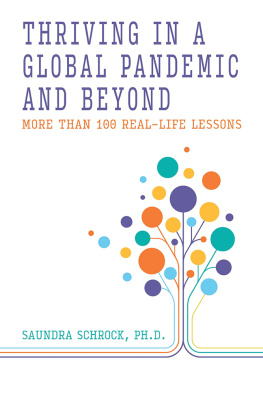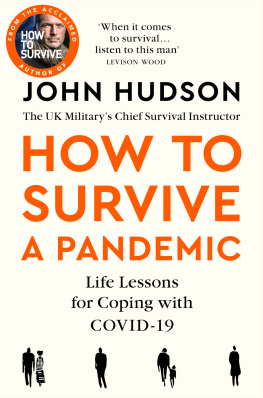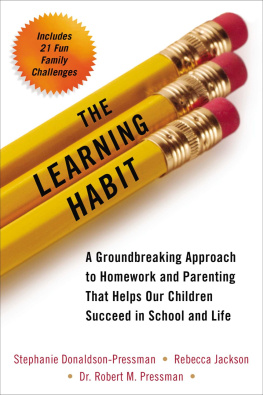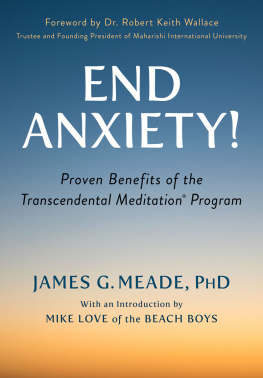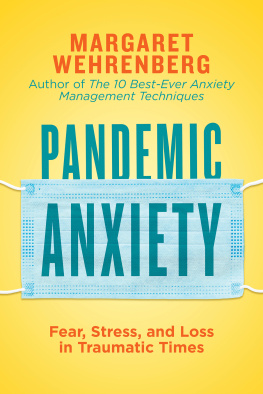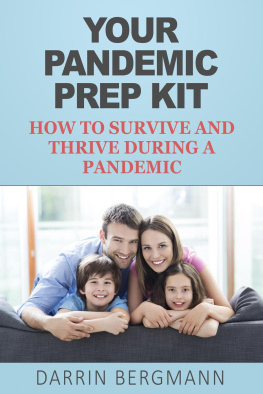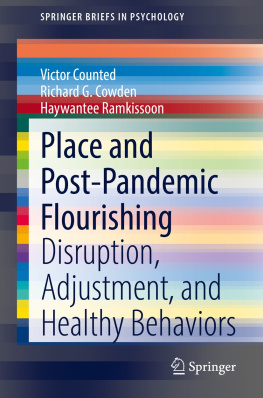
Disclaimer: Every effort has been made to make this book as complete and accurate as possible. The information is provided on an as-is basis. By its sale, the author is not engaging in rendering psychological or other professional services. If expert assistance or counseling is needed, the services of a competent professional should be sought. The author shall have neither liability nor responsibility to any person or entity with respect to any loss or damages arising from the information contained in this book.
All rights reserved. No part of this book shall be reproduced, stored, in a retrieval system, or transmitted by any means-electronic, mechanical, photocopying, recording,
or otherwise-without written permission from the author, except for the inclusion of
brief quotations in a review.
Copyright by Saundra Schrock, Ph.D.
Print IBSN: 978-1-09835-487-9
eBook IBSN: 978-1-09835-488-6
Contents
About the Author
For over 30 years, Saundra held various executive positions within the financial services industry. One of her most rewarding and challenging roles was to manage J. P. Morgan Chases branch banking network of 3,000 branches and over 30,000 employees. From her career beginnings as a bank teller to her role as Executive Vice President of J.P. Morgan Chase, Saundra credits much of her success to embracing the main tenets and practices of mindfulness. The dramatic impact these practices have had on her life ignited her passion for sharing the benefits of mindfulness with as many people as possible.
Today, Saundra is the founder and CEO of Levelhead, an organization that offers a mindfulness-based program designed for the workplace and higher education delivered via a digital engagement platform. This book reflects her extensive work in a wide variety of industries and her work with higher education. Her programs have been empirically validated to reduce stress and anxiety and offer busy people choices in how and when they practice mindfulness. For more information see www.getlevelhead.com and www.getlevelheaded.com. Saundra holds an MBA from Arizona State University and a doctorate in Industrial and Organizational Psychology from Grand Canyon University, Phoenix, Arizona.
Forward
I wrote this book in the Summer/Fall of 2020 as COVID-19 raged across the world. Now, as I write this forward, many of us have spent nine to ten months in some form of quarantine, being physically isolated from friends and family. We are frustrated and weary with the restrictions and are anxious for this to be over. The good news is that at least three new vaccines are being evaluated by the FDA giving us hope that better days are ahead.
However, regardless of what happens in the future, the medical and psychological communities agree that many will suffer from the pandemics psychological effects for years to come. On the other hand, we know from research that it is possible to experience growth from this trauma. For example, research shows that almost 90% of trauma victims report at least one aspect of thriving after a stressful situation or event (Tedeschi and Calhoun, 1995). Thats because learning to thrive from trauma acts as a catalyst to bring about change that helps us grow as human beings (Fredrickson, 2004).
While the book is written in the context of the pandemic, the practices and lessons are designed to help you build the skills you need to thrive both during and post-pandemic. For example, some lessons specifically refer to an environment where we are in a restricted environment, and others assume a more normal environment. Furthermore, these practices and lessons have been empirically proven with thousands of people to help them live happier and healthier lives. I can also tell you that these practices helped me while I was in the throes of COVID-19 and during my recovery.
The goal of this book is to provide practices and lessons to help you thrive in any environment. They are simple, only take a few minutes a day, and reflect real life situations and challenges. This makes them easy to incorporate into your daily routine. I urge you to commit to developing the skills needed not just to survive but to thrive.
Saundra Schrock
Chapter One:
Living in Unprecedented Times
Introduction
Many of us feel like we are living a nightmare caused by the wide-reaching impact of the COVID-19 pandemic. This nightmare is not just about being safe from the virus, but includes worries about financial security, social isolation, and political and social unrest. As a result, many of us are beginning to experience psychological symptoms such as stress, anxiety, depression, panic attacks, cloudy thinking, and memory losses (Lima et al., 2020). If you are feeling this way, you are not alone.
Data compiled in 2020 by the U.S. Census Bureau and the National Center for Health Statistics show that one third of U.S. adults have depression or anxiety symptoms. This is a sharp increase over the results of a comparable survey conducted in the first half of 2019. Another study completed in early April 2020 by the University of Connecticut found that the most common stressors were (Park et al., 2020):
- Reading/hearing about the severity and contagiousness of COVID-19 (96.6%)
- Uncertainty about the length of quarantine and social distancing requirements (88.3%)
- Disruptions to social life (83.7%)
- Changes to daily personal care (80.1%)
Furthermore, first responders and healthcare workers are likely to experience even higher stress levels and might be emotionally affected and traumatized with higher levels of depression and anxiety (McAlonan et al., 2007). This can be expected since these groups have higher levels of exposure to stressors.
So, what actions can we take to help us manage this? Who can we turn to for help? Even before this current crisis, mental health resources were scarce and not designed to help us in this unprecedented situation. The fact is, it will be up to us to figure out what we need and to seek out the resources to ensure that we come out the other side even more resilient than before.
Thriving in a Global Pandemic and Beyond
The COVID-19 pandemic has resulted in a dramatic impact on almost every aspect of life. We have had to live with uncertainty, changes in our daily routines, financial pressures, and social isolation. We are worried about getting sick, how long the pandemic will last, and what the future holds. We are overloaded with information, rumors, and misinformation which lead us to feeling like our lives are out of control.
Before the pandemic, we were a society that dined out frequently, traveled freely, and attended a wide range of entertainment events. During the pandemic, our socialization with others was limited to those we live with or to a small group. Also, our home became the center of our lives. We ate all of our meals at home, taught our children from home, found ways to entertain ourselves at home, and worked from home. Adding to an already stressful situation, many people have concerns about their childrens education, loss of income, job security, and the future (Van Bortel et al., 2016).
Furthermore, one of the dominant emotions during the pandemic is fear. Fear is an adaptive mechanism essential to survival that rallies many biological processes to help us prepare for a potentially threatening situation (Ornell et al., 2020). However, fear becomes harmful when it is ever-present or disproportionate to the problem, leading to several psychological disorders (Peeri et al., 2020). During a pandemic, fear increases and intensifies in both healthy individuals and in those with pre-existing mental health concerns which may have a more significant impact than the epidemic itself (Shigemura et al., 2020). This is not to say that there isnt a genuine need to be fearful of the disease. It is just that the psychosocial and economic impact may have broad implications for our finances, family, education, organizations, public policy, and changes in daily routines.

